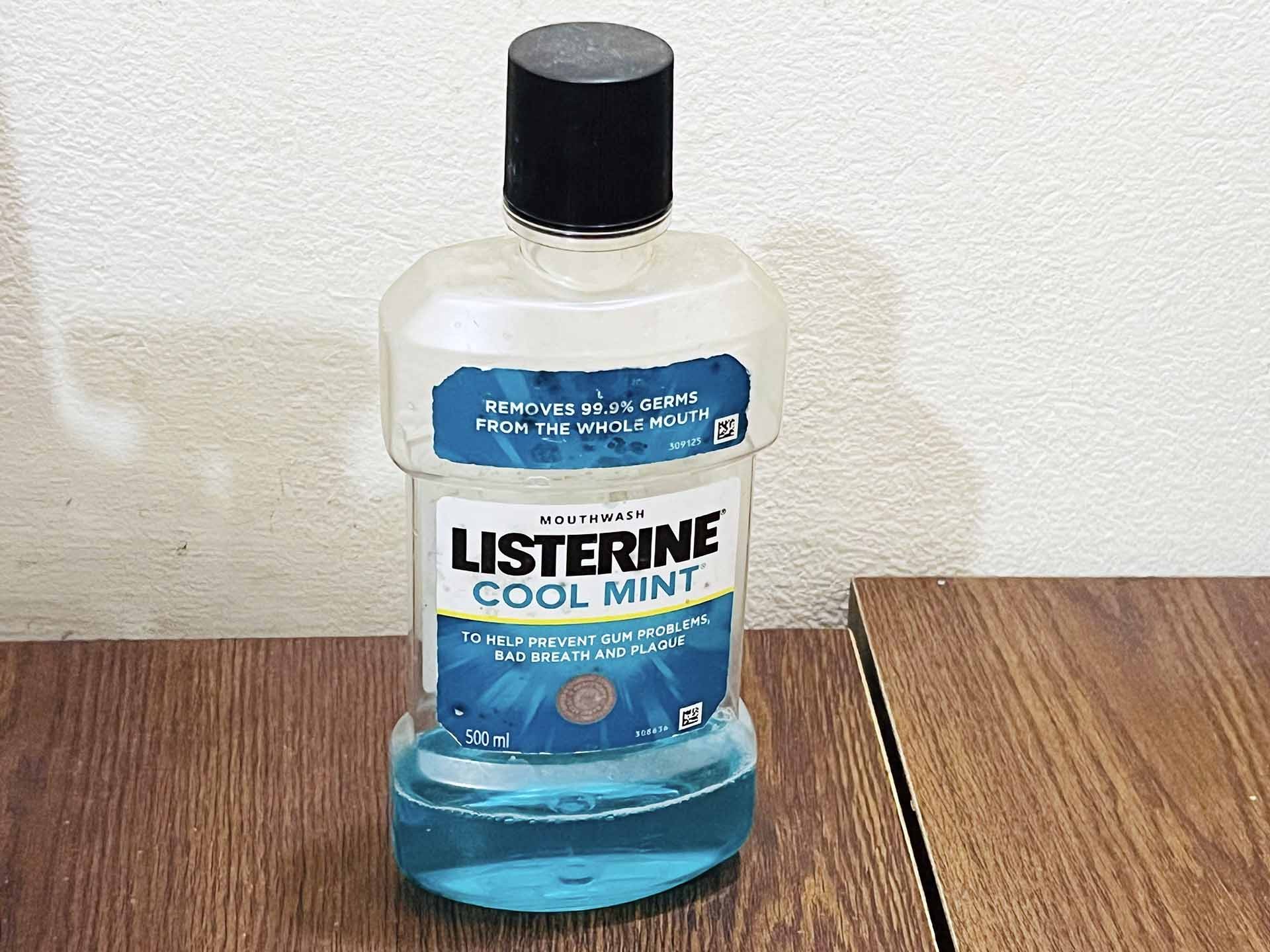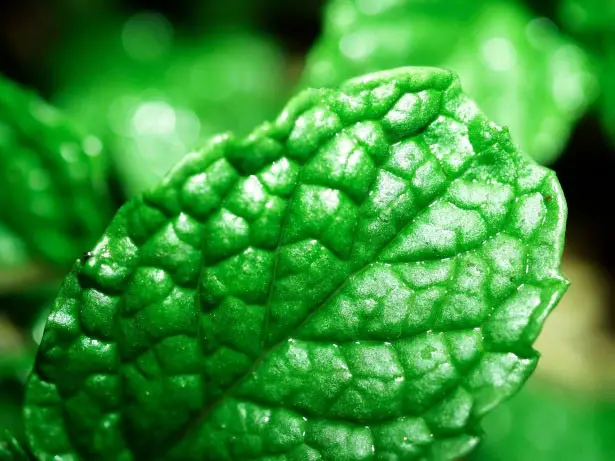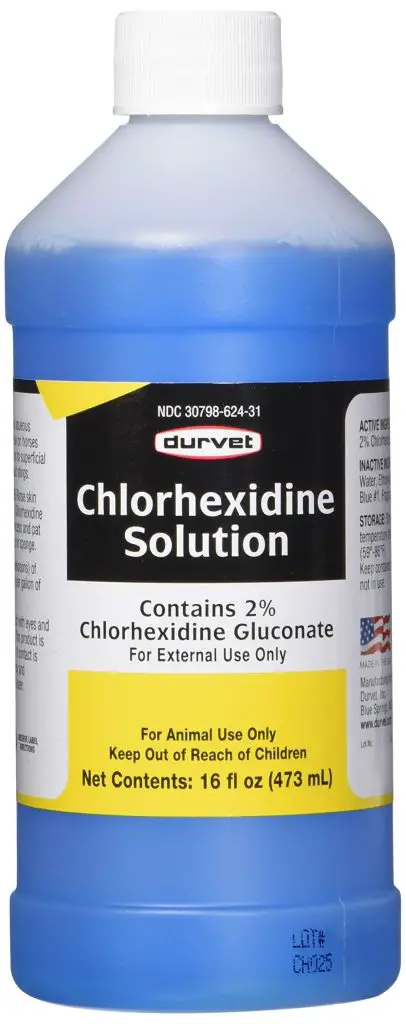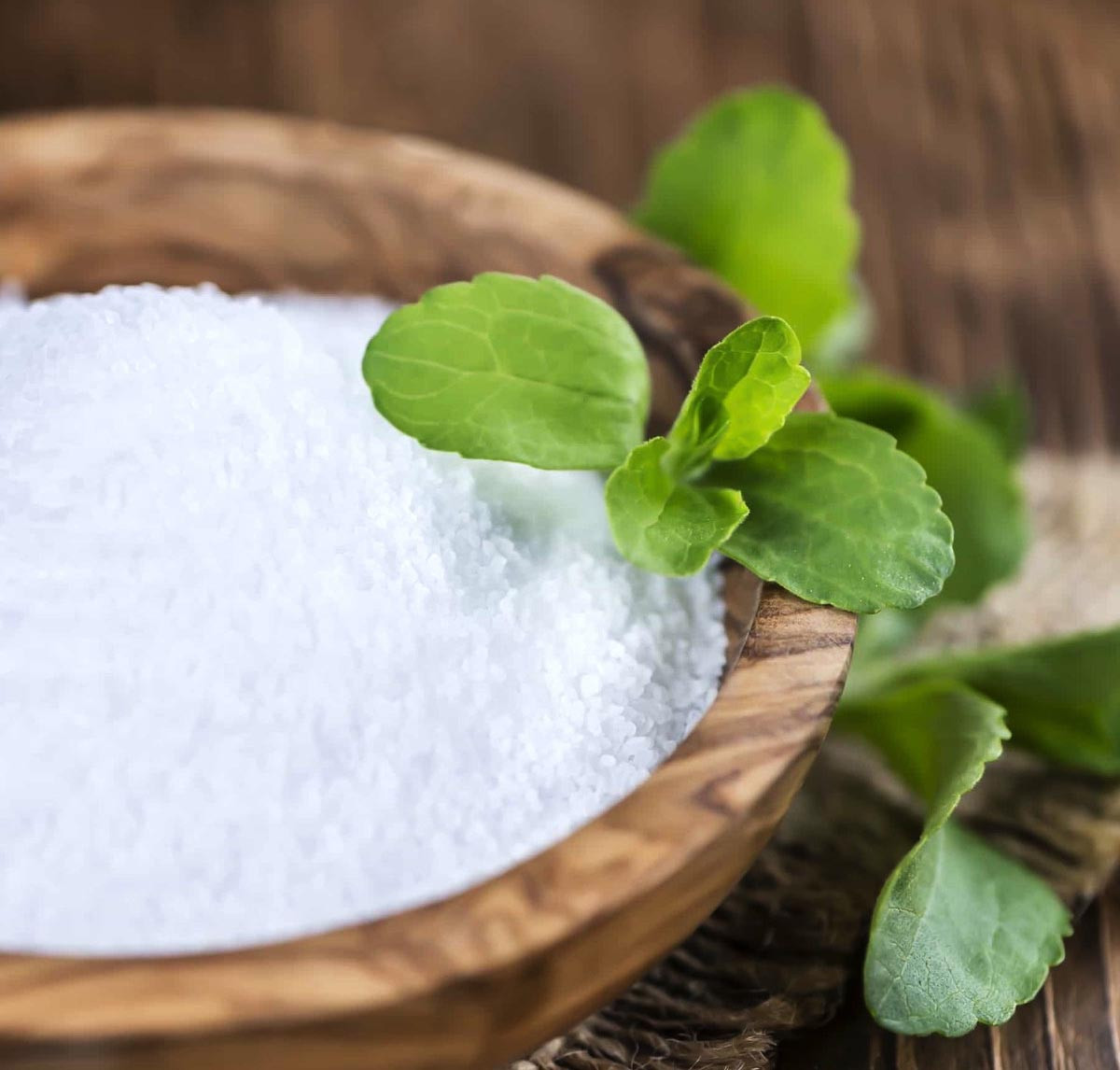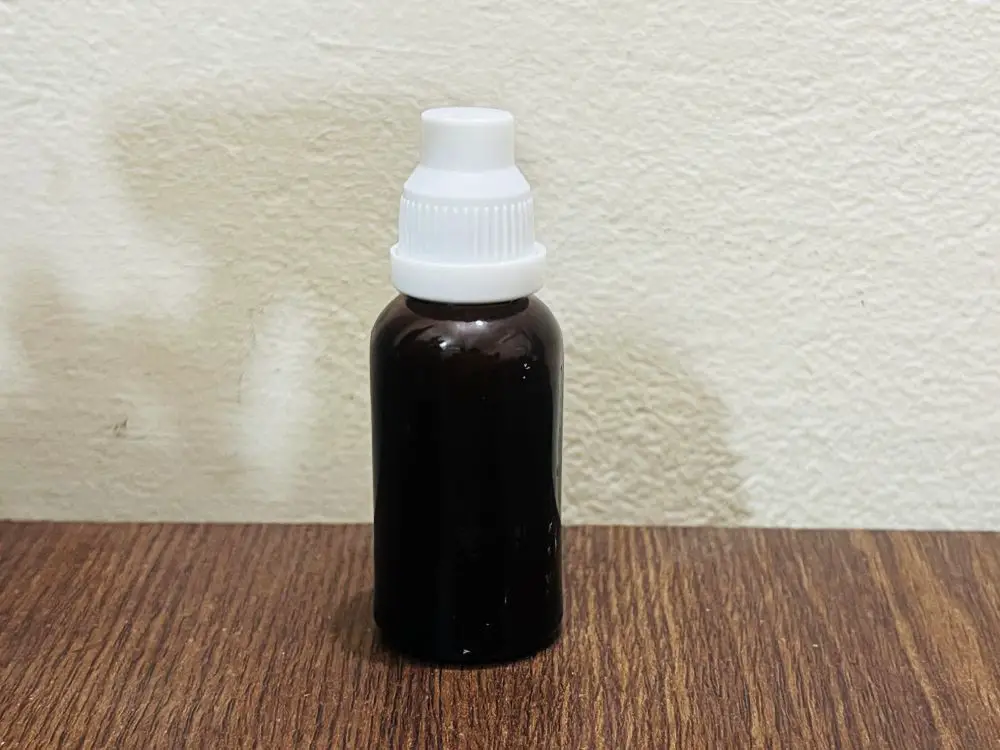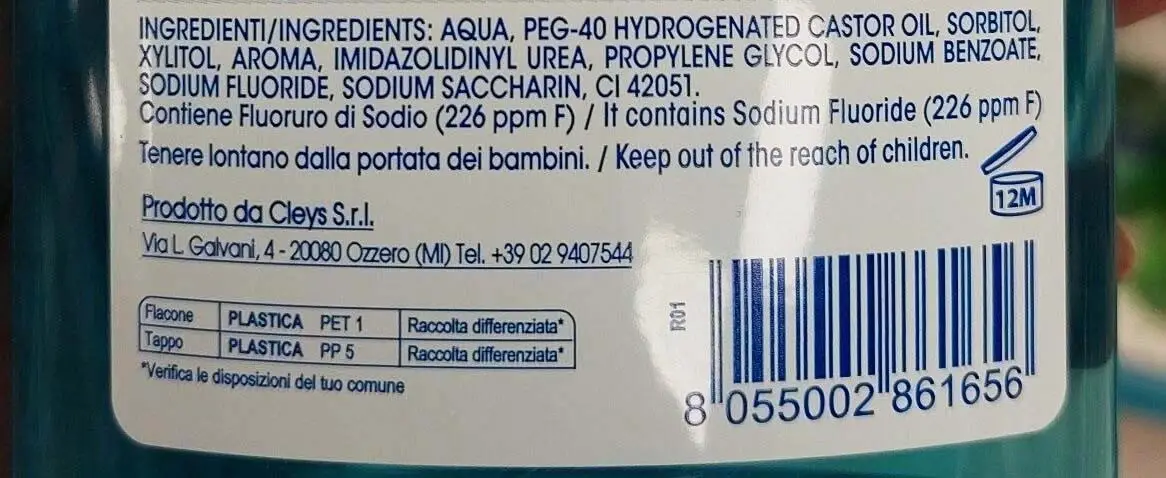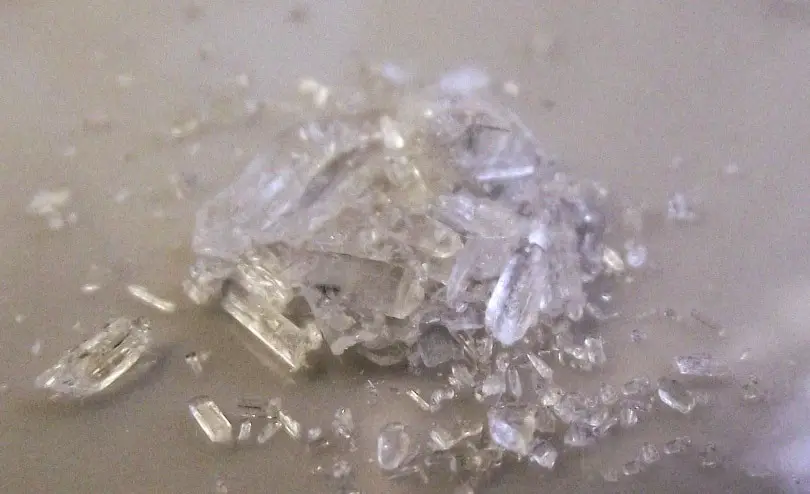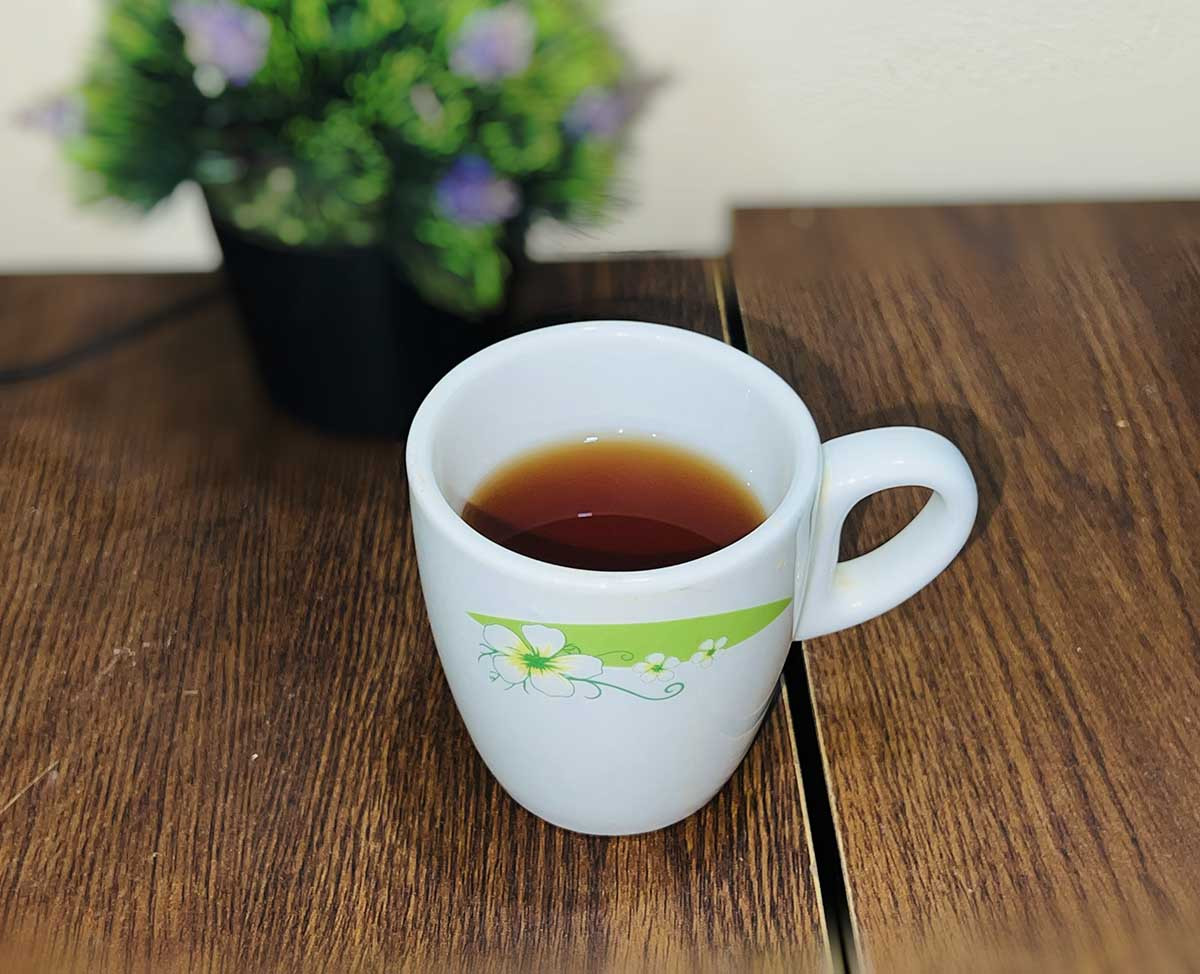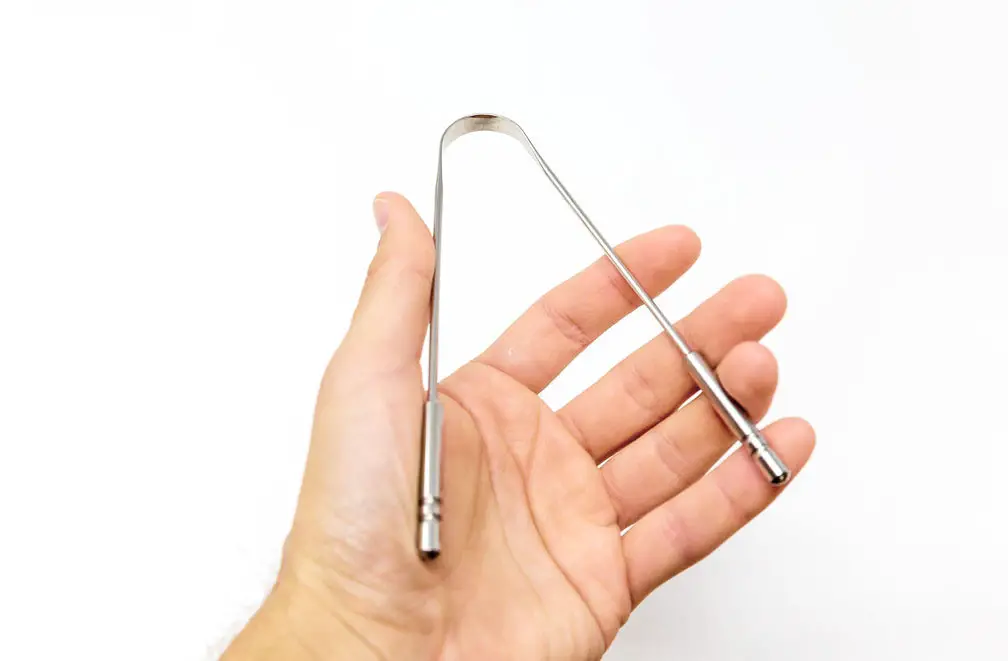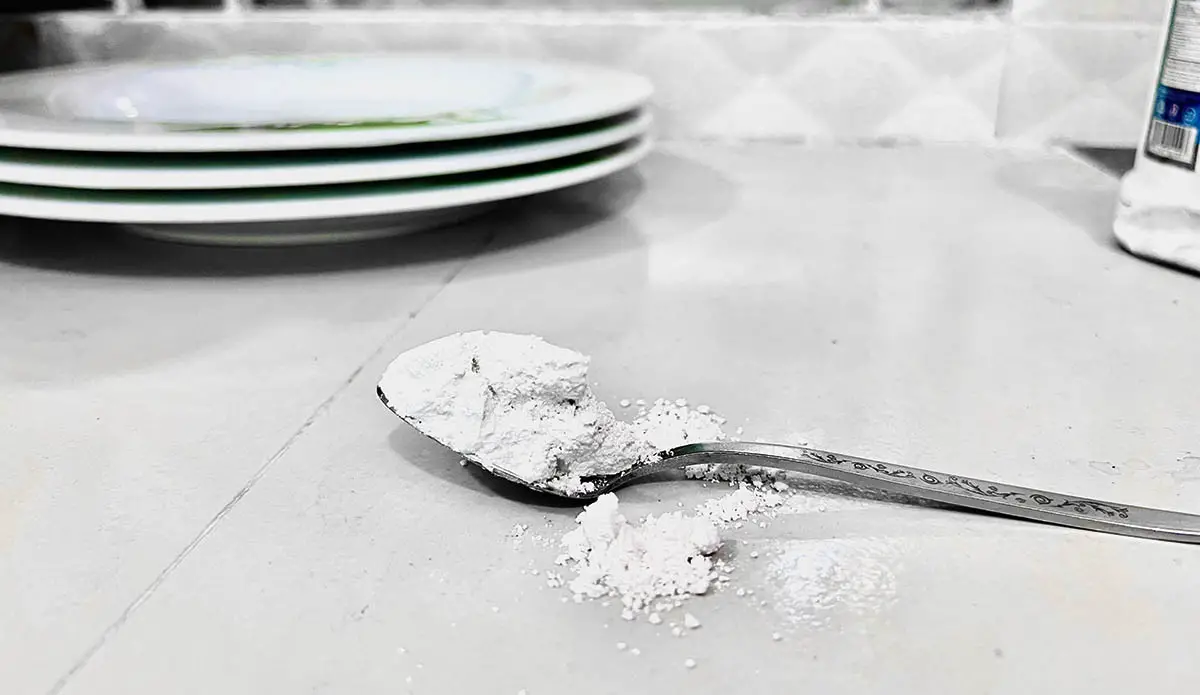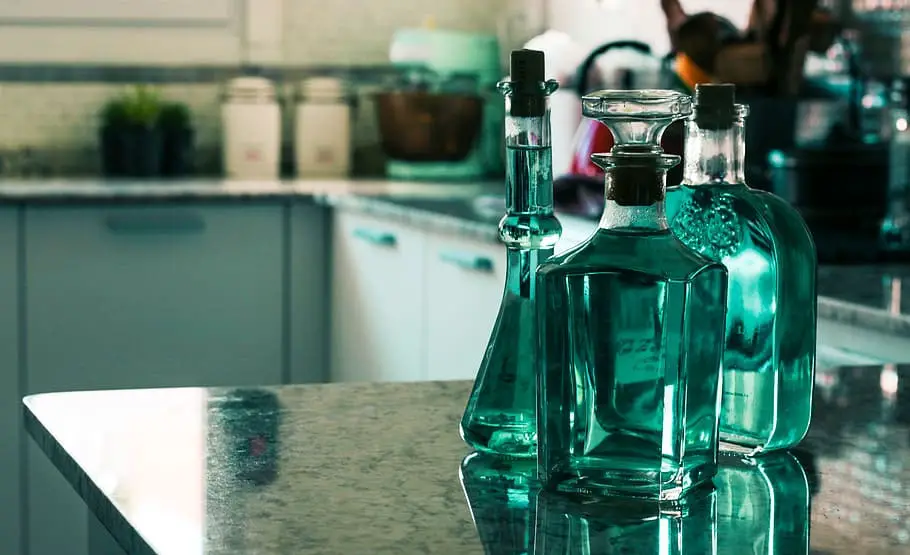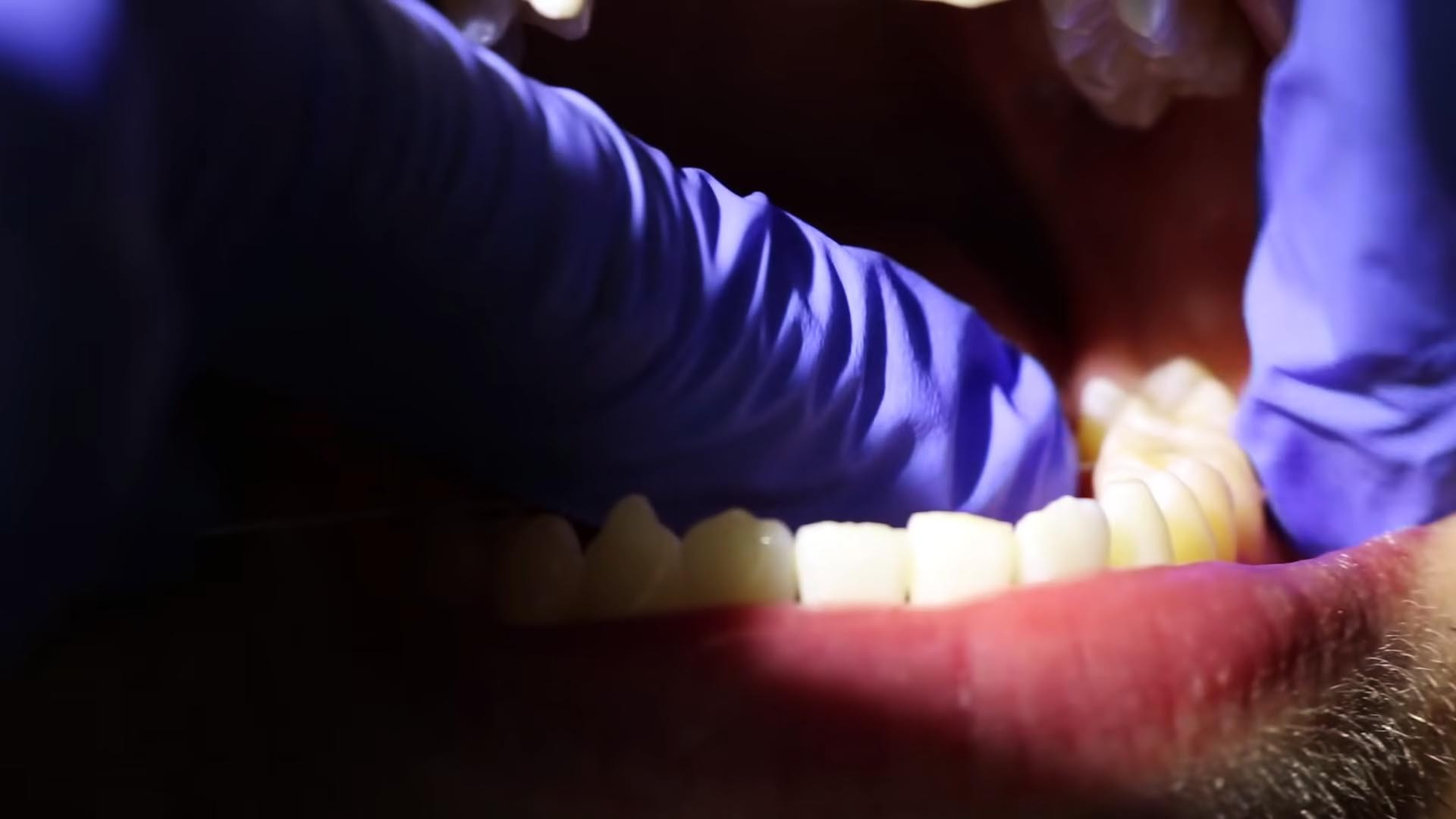This morning I woke up with a strange taste on my tongue that was a cross between a minty freshness and a faint chemical aftertaste. Before you jump to conclusions, let me clarify that this was not the result of a wild night experimenting with various types of mouthwash. Instead, it was the residual effect of my nightly oral hygiene regimen.
I am someone who loves having a clean, fresh mouth. So, I couldn’t help but wonder: How can I get rid of this overbearing mouthwash aftertaste? Following thorough research and numerous trials, I’ve compiled 13 practical strategies to help you effectively neutralize that mouthwash taste.
Understanding The Ingredients In Mouthwash
Before delving into why mouthwash leaves an aftertaste, let’s talk about its common ingredients. The mouthwash ingredients are the main culprit behind this aftertaste. Here are some of the common ingredients found in mouthwash and their purposes:
Alcohol
One of the most common ingredients in mouthwashes is alcohol, along with other microbiological agents. Alcohol is excellent at destroying the germs that result in tooth decay, foul breath, and gum disease.
However, it’s important to note that alcohol-based mouthwashes may induce a burning sensation and can dry out the mouth. If you have a dry mouth, it is best to stay away from rinses that include alcohol, as they might make it worse.
Methyl Salicylate, Menthol, and Eucalyptol
Mouthwash often contains essential oils such as mint (menthol), eucalyptus (eucalyptol), thyme (thymol), and wintergreen (methyl salicylate). These oils give us the impression that our mouths are clean and fresh.
While some evidence suggests that these components may suppress oral germs on their own, their main function is to generate the taste we desire in a rinse and make our breath fresher.
Chlorhexidine
Chlorhexidine is a powerful disinfectant and antiseptic that is similar to alcohol. It is particularly effective against the microorganisms that cause gum disease and tooth decay.
If you have been diagnosed with gingivitis, you may want to use a chlorhexidine rinse, as prescription rinses for gum disease often include this component.
Fluoride
Fluoride rinses work similarly to fluoride toothpaste in that they help rebuild and restore tooth enamel while preventing plaque buildup. It can remineralize the teeth and may even prevent bacteria.
It is probably the most useful component in the effort to stop tooth decay. After using a fluoride rinse, avoiding drinking water or rinsing your mouth with anything else for approximately 30 minutes is important.
This allows the fluoride to stay on your teeth for as long as possible. Additionally, be cautious not to swallow any mouthwash that contains fluoride, as it may be hazardous in excessive concentrations.
Xylitol
Xylitol has recently gained popularity as people look for more delicate but effective dental care products. It is a sugar alcohol that can be used to sweeten gum and sweets without damaging the teeth.
Xylitol has no calories and does not support oral microorganisms. Numerous studies have shown that it can enhance dental health by preventing mouth bacteria from processing other sugars.
Essential oils
Certain components found in essential oils, such as phenolic compounds and monoterpenes like eucalyptol, eugenol, menthol, hinokitiol, and thymol, possess antibacterial properties. These oils, known as essential oils, are derived from plants.
When used as mouthwashes, essential oil-based products have shown potential in effectively combating gum disease compared to traditional mouthwashes. As a result, they are now included in various commercial mouthwashes that aim to reduce bad breath.
Flavoring agents
To enhance the taste of mouthwashes, flavoring agents such as sorbitol, sodium saccharin, sucralose, and xylitol are utilized. These agents provide sweetness and flavor and encourage saliva production, helping restore the mouth’s pH balance.
Xylitol rinses, in particular, have been used as an alternative to alcohol-based mouthwashes to prevent the drying effects of alcohol.
Why Does Mouthwash Leave A Lasting Taste?
Now that I have talked about the common mouthwash ingredients and their purposes, let’s dive deep into why a mouthwash leaves a lingering aftertaste:
Alcohol Content
Many mouthwashes contain alcohol, which acts as a solvent for the other ingredients and as an antibacterial agent.
However, alcohol also has a strong and distinctive taste that can linger in the mouth for a long time. Alcohol can also dry out the mouth, reducing saliva production and affecting taste buds.
Flavorings
Manufacturers often add flavorings such as mint, citrus, or other aromas to make mouthwash more appealing and enjoyable.
These flavorings can mask the taste of alcohol and provide a refreshing sensation. However, they can also stick to the oral tissues and prolong the taste of mouthwash.
Essential Oils
Some mouthwashes contain essential oils, such as eucalyptol, menthol, and thymol, which have antimicrobial and anti-inflammatory properties. These oils can also enhance the cooling and soothing effect of mouthwash.
However, they can also leave a thin film on the tongue and oral tissues, which contributes to the lasting taste of mouthwash.
pH Balance
The pH level of mouthwash also influences how long it stays in the mouth. Most mouthwashes have a slightly acidic pH to help kill bacteria and maintain oral health.
However, this acidity can also affect the sensitivity of the taste buds, making the taste of mouthwash more noticeable and persistent.
13 Practical Ways To Get Mouthwash Taste Out Of Mouth
I know exactly how you feel if you’ve just used mouthwash and the lingering taste is too strong or unpleasant. Getting rid of that overpowering sensation in your mouth can be quite a challenge. But fear not, because I have some tried and tested methods that can help neutralize or remove that taste from your mouth. So, let’s get to them:
1. Water Rinse
First things first, a good old water rinse can work wonders. Swish plain water around your mouth several times and then spit it out. This simple action will help dilute the mouthwash and rinse away some of the residue, leaving your mouth feeling fresh and clean.
2. Eat Something Neutral
Another effective way to combat the mouthwash taste is by consuming foods that are considered neutral. Think bread, plain crackers, or unsalted nuts. These items can help absorb and dissipate the taste of mouthwash, giving your taste buds a much-needed break.
3. Dairy Products
Did you know that dairy products can help neutralize and mask the strong taste of mouthwash? It’s true! Drinking milk or eating yogurt can work wonders due to its fat content.
So go ahead and reach for that glass of milk or indulge in some creamy yogurt to help tame that lingering taste.
4. Sugar-Free Gum
Chewing gum is not only a great way to freshen your breath but can also help wash away the aftertaste of mouthwash. Opt for sugar-free gum to avoid any unwanted sugar rush.
The act of chewing gum increases saliva production, which in turn helps to naturally wash away the taste. Choose a different flavor from the mouthwash, like mint or fruit, to distract your taste buds even further.
5. Drink Herbal Or Green Tea
If you’re a tea lover like me, this one’s for you. Herbal or green teas, with their natural flavors, can help neutralize the strong taste of mouthwash. Sip on a soothing cup of tea and let it work its magic in calming your taste buds and refreshing your mouth.
6. Eat Citrus
Citrus fruits such as oranges or grapefruits can be your secret weapon in altering the taste sensation in your mouth. The tangy goodness of these fruits can help counteract the strong taste of mouthwash.
However, it’s important to be cautious, as acidic foods and drinks can be harsh on your teeth if consumed frequently. So, enjoy them in moderation.
7. Use A Tongue Scraper
Sometimes, no matter how hard you rinse, the residue from mouthwash can stubbornly stick to your tongue. It’s like it has taken up permanent residence, and no amount of swishing seems to do the trick.
But fret not because a nifty little tool called a tongue scraper can come to your rescue. You can remove any residual mouthwash along with that strong, lingering taste by gently scraping your tongue. It’s a small but mighty step in your quest for a neutral mouth.
8. Swish With Baking Soda Solution
Baking soda is the multitasking hero of every household. Not only does it work wonders in the kitchen and for cleaning, but it can also be a lifesaver when it comes to battling the taste of mouthwash.
Here’s what you do: dissolve half a teaspoon of baking soda in a glass of water and swish it around your mouth. The baking soda helps neutralize the taste and leaves your mouth feeling refreshed. Just make sure to rinse your mouth with plain water afterward to get rid of any lingering baking soda flavor.
9. Avoid Strongly Flavored Foods/Drinks Immediately After
Picture this: you’ve just finished swishing your favorite mouthwash and are ready to indulge in some delicious coffee or spicy foods. Combining the taste of mouthwash with strongly flavored foods or drinks can lead to an odd and not-so-pleasant taste combination in your mouth.
To avoid this culinary clash, it’s best to wait a while or take some steps to remove the mouthwash taste first. Your taste buds will thank you.
10. Choose A Different Mouthwash
If you constantly battle the taste of your current mouthwash, it might be time to consider a change. Luckily, there are plenty of options out there for you to explore. Some brands offer milder or more natural-tasting mouthwashes that might be more up your alley.
Remember, different mouthwashes are formulated to linger in your mouth for a while to ensure their effectiveness. But if the taste bothers you a lot, consulting with a dentist or oral health professional might be worth consulting to find a product that suits your taste buds better.
11. Use An Alcohol-Free Mouthwash
If you find that the taste of mouthwash is particularly strong and persistent, consider switching to an alcohol-free alternative.
Alcohol can contribute to the lingering taste, so opting for a mouthwash without alcohol can help to minimize the aftertaste. Look for mouthwashes that contain natural ingredients and flavors that you enjoy.
12. Try Oil Pulling
Oil pulling is an old Ayurvedic practice that involves swishing oil in the mouth for a few minutes. While traditionally done with coconut or sesame oil, you can also try using a natural oil like olive oil or sunflower oil.
Not only can oil pulling help to remove toxins and bacteria from your mouth, but it can also help to eliminate the taste of mouthwash.
13. Time Heals All Tastes
Sometimes, all you need is a little bit of patience. The lingering taste of mouthwash will eventually fade away on its own.
Give it some time, and focus on drinking plenty of water throughout the day to help speed up the process.
How to Use Mouthwash Correctly and Effectively
Mouthwash is a liquid product that you can use to rinse your teeth, gums, and mouth. It can help to prevent plaque, gingivitis, and bad breath by killing harmful bacteria and freshening your breath. However, mouthwash is not a substitute for brushing and flossing, and it only works well when you use it correctly.
Different brands of mouthwash may have different instructions, so always follow the directions on the label. Here are some general guidelines on how to use mouthwash properly and effectively.
Step One: Brush and floss your teeth first
Before using mouthwash, you should brush your teeth with fluoride toothpaste and floss them to remove any food particles and plaque.
This will make the mouthwash more effective and prevent it from washing away the fluoride in the toothpaste. If you use mouthwash right after brushing, you may reduce the benefits of both products.
Step Two: Measure the right amount of mouthwash
Pour the recommended amount of mouthwash into a cup or the cap provided with the product. Usually, this is between 3 and 5 teaspoons (15 to 25 milliliters). Do not drink directly from the bottle, as this is not hygienic and may affect the dosage.
Step Three: Swish and gargle for 30 seconds
Empty the cup or cap into your mouth and swish the mouthwash around your teeth, gums, and tongue. Do not swallow it, as mouthwash is not meant to be ingested and can be harmful if swallowed in large amounts.
Gargle for 30 seconds to reach the back of your throat and kill any bacteria there. You can use a timer or count in your head to make sure you rinse for long enough.
Step Four: Spit out the mouthwash
Spit the mouthwash into the sink and avoid rinsing your mouth with water immediately afterward. Rinsing with water will dilute the effects of the mouthwash and wash away the active ingredients. Just spit out any excess mouthwash and let it continue to work in your mouth.
FAQs
Now that I have talked about the causes and solutions of lingering mouthwash taste in our mouths, let’s know the answers to some common questions regarding the matter:
Should I Rinse After Using Mouthwash?
No, rinsing after using mouthwash is not recommended. According to the NHS, rinsing with water immediately after brushing your teeth will wash away the concentrated fluoride in the toothpaste, which helps prevent tooth decay.
Additionally, rinsing dilutes the effects of mouthwash, which continues to work even after you spit it out. Therefore, it is advised to spit out any excess toothpaste or mouthwash but refrain from rinsing your mouth right after brushing or using mouthwash.
Why Do I Feel Strange After Using Mouthwash?
You may feel unusual after using mouthwash for a few reasons. One reason is the high alcohol content found in some mouthwashes, which can cause a burning sensation in the mouth and dry out the oral tissues.
Another reason is the potential alteration in taste that certain mouthwashes can cause, leaving a metallic, bitter, or spicy sensation when consuming food. Lastly, the disruption of the oral microbiome can lead to a strange feeling. Some mouthwashes may eliminate too many bacteria, which can impact digestion and immunity.
Why Is It Not Recommended To Use Mouthwash After Brushing?
Using mouthwash after brushing can diminish the effectiveness of both products. As mentioned earlier, rinsing with water or mouthwash after brushing will wash away the fluoride in the toothpaste, which helps protect your teeth from decay.
Additionally, certain toothpaste and mouthwashes may contain ingredients that interact with each other, potentially neutralizing their benefits. For example, some toothpaste contains sodium lauryl sulfate (SLS), which can reduce the antibacterial activity of chlorhexidine, a common ingredient in mouthwash.
Therefore, it is advisable to use mouthwash at different times of the day, such as after lunch or before bed.
Is It Safe To Swallow Mouthwash?
No, swallowing mouthwash is not safe. Mouthwash is not meant to be ingested and can be harmful if swallowed in large amounts. Swallowing mouthwash can result in nausea, vomiting, diarrhea, drowsiness, dizziness, low blood pressure, rapid heartbeat, difficulty breathing, coma, and even death.
The risks are especially higher for children and individuals with alcohol dependence or liver problems. If you accidentally swallow a small amount of mouthwash, serious effects may not occur. However, if you ingest a large amount or experience any symptoms of poisoning, immediate medical attention should be sought.
Conclusion
At the end of the day, everyone desires long-lasting fresh breath, but not necessarily the prolonged taste of mouthwash.
And, there you have it, my practical ways to get mouthwash taste out of your mouth. These methods have personally worked wonders for me, and I hope they do the same for you.
Remember, it’s all about finding what works best for you and your taste buds. So, give these tips a try and say goodbye to that overpowering mouthwash taste!
Also read:-Should I Keep My Electric Toothbrush On The Charger? A Comprehensive Guide

